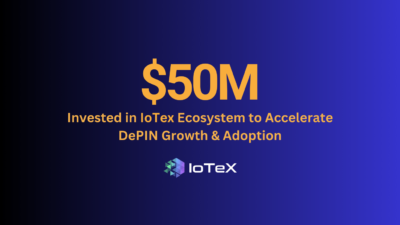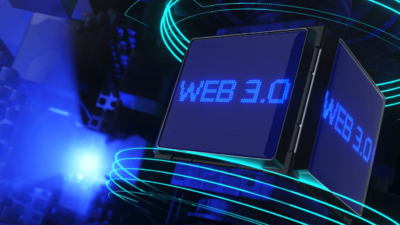
Industrial Metaverse Can Address Real-World Challenges in Manufacturing
- November 4, 2023
- Arya Sanyal
- Metaverse, Web3
- 0 Comments

In recent times, the concept of an industrial metaverse has been gaining a lot of attention. It refers to a virtual and physical reality that is highly interconnected and immersive, providing unprecedented levels of connectivity and data analysis capabilities.
Peter Koerte, the strategic officer, and the chief technology officer of Siemens AG along with Sunil Mathur, CEO & MD of Siemens India were in an interview with Sudhir Chowdhury. They discuss the megatrends and digital use cases on Siemens Xcelerator.
According to Peter Koerte, Indian companies have a distinctive chance to hasten their digital transformation using Siemens Xcelerator portfolio, which incorporates cutting-edge technologies such as industrial AI, industrial edge, digital twin, and 5G.

Integrating the Industrial Metaverse with Traditional Manufacturing Processes
Peter Koerte explains that the industrial metaverse is crucial in enabling the industry to become faster, more flexible, and more sustainable. the industrial metaverse is crucial in enabling the industry to become faster, more flexible, and more sustainable.
To illustrate this point, he cites an example where a new factory was first developed as a digital twin. Thereafter, with every aspect of the workflow, machine, and material flow optimized.
As a result, the workers were already familiar with the machines when the physical factory was built. Thereafter, leading to a 20% increase in productivity. With the ability to seamlessly integrate the digital and real world, the flexibility of the factory increased by 40%.
Related: Retail Companies are Setting Up Shops in the Metaverse World
Can Industrial Metaverse Bring a Competitive Edge to Indian Companies?
Sunil Mathur added that Siemens Xcelerator, the digital business platform, can offer a competitive edge for Indian companies. Thereafter, by providing access to a robust platform featuring an array of products. Along with tailored use cases designed to address industry-specific solutions.
The platform offers an ecosystem of partners to collaborate directly or work alongside Siemens. Therefore, making it an ideal solution for SMEs that may not have extensive capital readily available. Overall, there’s a strong business case for adopting this platform.
Peter Koerte highlights the focus on developing and providing solutions as a service within the Siemens Xcelerator framework. Specifically through the mode of cloud-based software as a service (SaaS). Businesses can easily access these services through subscription models. Moreover, often provide free trial periods for testing purposes.
Siemens Xcelerator’s Positive Feedback From Customers
Sunil Mathur shares that the customers have been responding positively to Siemens Xcelerator. Moreover, mainly because they are looking for a strong business case.
For instance, in the hospitality industry, the return on investment (ROI) was realized within 18 months. Similarly, cement plants witnessed RoI in just two years. The pharmaceutical food and beverage sectors have also started experiencing the practical advantages of Siemens Xcelerator’s solutions.
Role of AI in Optimizing Industrial Processes and its Significance in Manufacturing
Peter Koerte explains that industrial AI has a broad range of applications, from monitoring NOx emissions, CO2 levels, fuel consumption, and temperature in gas turbines to automating bin picking on the shop floor.
In the latter case, AI is used to detect objects and move them from one bin to another or onto a shelf without human intervention.
Can Investments in Sustainability and Digitalization Deliver ROI and Profitability for Companies?
Peter Koerte emphasizes the interdependence of decarbonization and digitalization. He notes that achieving significant decarbonization is not possible without first establishing a digital baseline.
Thereafter, for understanding the amount of CO2 emissions generated across the value chain. This requires the use of digital means, often facilitated by Blockchain, to measure and exchange information about emissions across supply chain participants.
In Conclusion
The industrial metaverse holds immense potential for revolutionizing traditional manufacturing processes and enabling companies to become faster, more flexible, and more sustainable. With cutting-edge technology and the focus on providing solutions as a service, Indian companies can gain a competitive edge and accelerate their digital transformation. By investing in sustainability and digitalization, companies can not only achieve significant ROI and profitability but also contribute to a more sustainable future. The future of manufacturing is here, and it’s time for companies to embrace the industrial metaverse and reap its benefits.
Recent Posts
- Top NFT Development Companies and Marketplaces in the World
- Tips to Avoid Common Mistakes for New Crypto Investors
- How Did the FBI Acquire 1.5% of the World’s Total Bitcoins?
- 55% of Investors Don’t Understand Blockchain in North America, Asia Pacific, and Europe
- Top Cryptocurrency Wallet Development Companies in the World





Leave A Comment